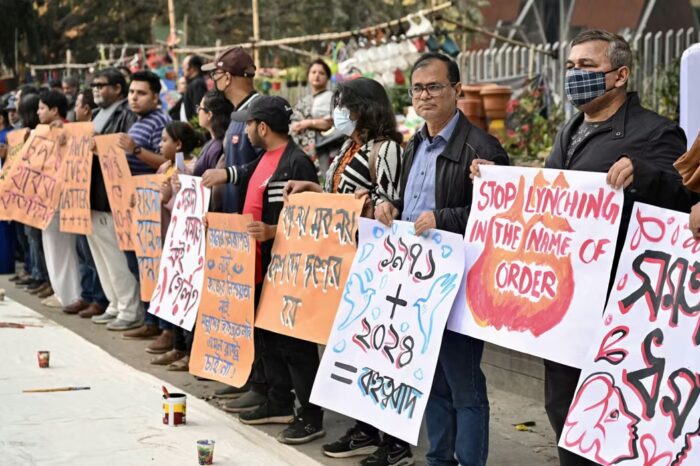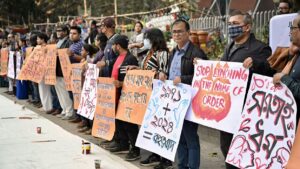Sikh Women’s Aid survey reveals alarming data on domestic abuse by female perpetrators and child abuse

Representational image by The Telegraph India
UK charity and victim support service Sikh Women’s Aid has launched its second publication that looks to evidence and examine the prevalence and impact of domestic and sexual violence in the Sikh Panjabi community.
Sikh Women’s Aid has also spent the last 18 months supporting more than 130 families, also impacted by domestic and sexual abuse. The main purpose of the charity is to challenge abuse and oppression of women and children within families, in homes and places of worship in the Sikh Panjabi community.
The report is based on an anonymous survey that was circulated amongst the Sikh Panjabi community in the Summer of 2022 and closed with 839 respondents. The report was formally launched at their second conference titled ‘From Her Kings are Born – Sikh Women’s Aid Conference’ which was held to mark the International Day of Elimination of Violence against Women and Girls. It also coincided with the birth anniversary of the first spiritual teacher and founder of the Sikh faith, Guru Nanak Dev Ji, whose teachings are insistent regarding the high value of women in society. The conference was held at the Tally Ho Conferencing Suite in Birmingham on Friday, 25th November 2022.
When examining the 2022 data, damning figures show that:
• 62% of Sikh Panjabi women and girls who responded to the survey, reported they had experienced domestic abuse.
• Nearly half (46%) of all respondents who experienced domestic abuse had more than one perpetrator.
• Almost a third of all respondents (32%) have experienced sexual abuse with 62% of these respondents saying this abuse took place when they were children.
This year Sikh Women’s Aid looked at the subject of female perpetrators involved in the abuse and oppression of women and girls. Females in-laws were identified as the second highest perpetrators of domestic abuse. Work is needed to understand why women who were reported by respondents to be perpetrators (33%), feel able to subject other women to domestic abuse. There is little to no research on the complex relationships between mothers in-law and daughters-in-law.
When examining the data, co-founder, and Chair of Trustees Sukhvinder Kaur said, “We as trustees are heartbroken at the sheer number of respondents telling us they were sexually abused as children and the perpetrators are disproportionately from the immediate and extended family setting. What is even more heart-breaking is the that 48% of those who experienced abuse to date, have told no one about the abuse they suffered as children because many feared they would not be believed.
“This is a damning indictment against the Sikh Panjabi community, and we should hang our heads in shame at the sheer level of abuse that has been allowed to run rampant in parts of our community. Sikh Women’s Aid is unflinching in its assertation that the Sikh Panjabi community is amidst an abuse crisis and has been so for decades. Let us hope it does not take us decades to undo the damage caused.”
CEO of Sikh Women’s Aid added, “The Sikh Panjabi Community is recognised as a giving and caring community who never fall short of stepping up and supporting the weak and vulnerable, so we do not underestimate the responsibility we have, as a service provider in tackling such a sensitive subject by presenting our findings.
“In these last 18 months referrals have come into us nationally and internationally, and demand is outstripping supply. A significant part of the community is still in denial about the extent of the problem when dealing with domestic and sexual violence committed against women and children. The coverup of perpetrators is a huge concern for us, as there doesn’t seem to be a deterrent for perpetrators. Many statutory services and the legal system have a lot of learning to do, and it needs to change otherwise victims will continue to be let down.
“As a community we must acknowledge and accept that domestic and sexual abuse, oppression, and exploitation of women and children does exist in our community. Only then can we take action to end it.”








